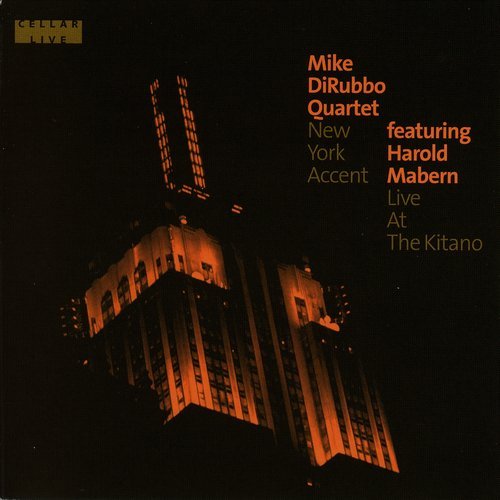The Sound and the Fury - Firminus Caron: Masses & Chansons (2013)

Artist: The Sound and the Fury
Title: Firminus Caron: Masses & Chansons
Year Of Release: 2013
Label: Fra Bernardo
Genre: Classical
Quality: FLAC (image + .cue, log, artwork)
Total Time: 03:10:19
Total Size: 967 MB
WebSite: Album Preview
Tracklist:Title: Firminus Caron: Masses & Chansons
Year Of Release: 2013
Label: Fra Bernardo
Genre: Classical
Quality: FLAC (image + .cue, log, artwork)
Total Time: 03:10:19
Total Size: 967 MB
WebSite: Album Preview
CD 1
01. Chanson "Accueilly ma la belle"
Missa "Accueilly ma la belle"
02. I. Kyrie
03. II. Gloria
04. III. Credo
05. IV. Sanctus
06. V. Agnus Dei
Missa "Sanguinis sanctorum"
07. I. Kyrie
08. II. Gloria
09. III. Credo
10. IV. Sanctus
11. V. Agnus Dei
CD 2
Missa "Jesus autem"
01. I. Kyrie
02. II. Gloria
03. III. Credo
04. IV. Sanctus
05. V. Agnus Dei
Missa "L'homme arme"
06. I. Kyrie
07. II. Gloria
08. III. Credo
09. IV. Sanctus
10. V. Agnus Dei
CD 3
Missa "Clemens et benigna"
01. I. Kyrie
02. II. Gloria
03. III. Credo
04. IV. Sanctus
05. V. Agnus Dei
Chansons
06. Cuidez vous
07. Du tout ainsi
08. Accueilly m'a la belle
09. Mort ou mercy
10. S'il est ainsy
11. Helas m'amour
12. Le despourveu
Continuing their forays through the less well-known parts of the Renaissance repertory, The Sound and the Fury now give us almost the entire known works of Firminus Caron (active in the 1460s and ’70s) – lacking only a dozen or so secular pieces. The top line is taken throughout by the peerless David Erler, a man who seems unable to produce an inelegant line or a less than lovely sound. And the other four singers are among the most experienced anywhere in the world for 15th-century music. With musicians like these, it is almost enough to put them in a studio and start recording.
But you also need intelligent editions, and here the inexhaustible Jaap van Benthem has come to the rescue by reconsidering every detail of the music and effectively replacing the 40-year-old standard edition of Caron. This is in itself a major achievement and contributes enormously to the overall quality of the performances.
And a particular welcome to the secular songs, with complete texts and complete forms. Because the songs would seem to be his most successful works. In particular, ‘Helas m’amour’ (better known as ‘Helas que pourra devenir’) survives in over 20 sources, more than almost any other song of its decade, and this performance makes it perfectly clear why: it is a marvellous and bewitching piece, crammed with fascinating incident.
The only trouble that can arise is if the voices you have at your disposal do not match those expected by Caron. Whereas three of his Masses are scored for a high voice, two tenors and a bass, so they flow effortlessly, the other two have the three lower voices more or less in the same range (they may be earlier): with the Mass Jesus autem the bass singer is so overbalanced as a result that the total sound is really rather unpleasant; the balance is much better in the Mass L’homme arme but here the singers all sound seriously overtired, with rough intonation, approximate rhythms, poorly synchronised entries, tight sound and snatched breaths. It would obviously have been better to give them a rest and try another day but the realities of life can make that impossible. And at least we have all this music now in serious recordings. -- David Fallows
But you also need intelligent editions, and here the inexhaustible Jaap van Benthem has come to the rescue by reconsidering every detail of the music and effectively replacing the 40-year-old standard edition of Caron. This is in itself a major achievement and contributes enormously to the overall quality of the performances.
And a particular welcome to the secular songs, with complete texts and complete forms. Because the songs would seem to be his most successful works. In particular, ‘Helas m’amour’ (better known as ‘Helas que pourra devenir’) survives in over 20 sources, more than almost any other song of its decade, and this performance makes it perfectly clear why: it is a marvellous and bewitching piece, crammed with fascinating incident.
The only trouble that can arise is if the voices you have at your disposal do not match those expected by Caron. Whereas three of his Masses are scored for a high voice, two tenors and a bass, so they flow effortlessly, the other two have the three lower voices more or less in the same range (they may be earlier): with the Mass Jesus autem the bass singer is so overbalanced as a result that the total sound is really rather unpleasant; the balance is much better in the Mass L’homme arme but here the singers all sound seriously overtired, with rough intonation, approximate rhythms, poorly synchronised entries, tight sound and snatched breaths. It would obviously have been better to give them a rest and try another day but the realities of life can make that impossible. And at least we have all this music now in serious recordings. -- David Fallows

![Julian Lage - View with a room & The layers (2023) [UHQ-CD] Julian Lage - View with a room & The layers (2023) [UHQ-CD]](https://www.dibpic.com/uploads/posts/2026-02/1771252057_front.jpg)

![Johannes Enders - Standard Questions (2026) [Hi-Res] Johannes Enders - Standard Questions (2026) [Hi-Res]](https://www.dibpic.com/uploads/posts/2026-02/1771328675_folder.jpg)




